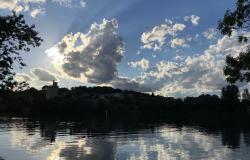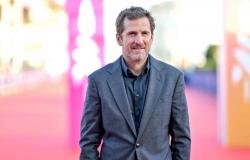LFrance clearly has the wind in its sails again”, welcomes a French company manager present on site, on condition of anonymity, claiming to have observed this during recent calls for tenders won in Morocco by French companies.
The cause of this return to grace? In July, French President Emmanuel Macron supported Morocco’s autonomy plan for the Sahara in a letter to King Mohammed VI.
Before Paris, Washington, Berlin and Madrid had also joined the autonomy plan under Moroccan sovereignty, proposed in 2007 by Rabat.
Two days after the official publication of Emmanuel Macron’s letter, the French engineering company Egis, allied with its counterpart Systra and the Moroccan company Novec, was awarded a contract providing for the extension of the train line at high speed between Kenitra and Marrakech.
An announcement which surprised some of the economic players on site at the time, contacted by AFP, who saw a link with the new French position on the Sahara. When asked, Egis did not respond to AFP’s requests.
“There will surely be a development and acceleration of economic cooperation between countries, particularly in the Moroccan Sahara.”, judges in any case the president of the Morocco-France friendship group in the House of Advisors, Mohamed Zidouh, interviewed by AFP.
Especially since the Sahara, with its enormous solar and wind resources, is strategic for the economic development of the kingdom, which has resolutely turned towards renewable energies, and hopes to position itself on the green hydrogen market.
Western companies, including French, are already present there. The energy group Engie, for example, is currently building a seawater desalination station in Dakhla, as well as a wind farm, in a consortium with the Moroccan Nareva. Still on the French side, the group specializing in construction and infrastructure Sade-CGTH won a call for tenders for a water network connection project in Dakhla.
The rapprochement between Paris and Rabat is greeted with a certain relief by French companies in Morocco. “We’ve been keeping a low profile for two years”, attests Etienne Giros, president of the French Council of Investors in Africa (Cian). “It was not in our interest to highlight our nationality”, he adds.
Major Moroccan economic players “start knocking on our door again” for partnerships in the country, also testifies a French entrepreneur, who wishes to remain anonymous. While in recent years, “we were starting to hear people say here that there were too many projects with the French. We felt a palpable tension”.
“In terms of public procurement, over this period, it was perhaps a little more complicated”, notes Jean-Charles Damblin, general director of the French Chamber of Commerce and Industry of Morocco. Overall, however, “we have not seen a marked slowdown” economic relations due to diplomatic tensions in recent years, he said.
The director cites as proof the very close relations between France and Morocco, which have not weakened: trade reached a record of 14 billion euros last year. The war in Ukraine notably caused a sharp increase in imports of French agricultural products.
And France is the leading foreign investor in Morocco with almost all of the companies in the CAC 40 stock index represented in the kingdom, and 1,000 French subsidiaries, notably construction and assembly factories (automobile, aeronautics).
Morocco is the leading African investor in France, with direct investments increasing from 372 million euros in 2015 to 1.8 billion in 2022.
The diplomatic warming, after a standoff imposed by Morocco on France which until then wanted to maintain a balanced position on the Sahara question vis-à-vis Algeria, had been initiated by several ministerial visits in recent months , prelude to a state visit by Emmanuel Macron “end of October”, constantly postponed for several years, but finally announced on Friday.
In April, the French government even indicated that it was ready to contribute to the financing of a high voltage line between Casablanca and Dakhla, via the subsidiary of the French Development Agency, Proparco.
The French EDF has positioned itself on this electrical connection project, a “South-North electric highway” established over 1,400 kilometers.
Despite the economic fallout it brings, the Élysée’s decision was not motivated by the economy, a source close to the matter assures AFP. “That it can have economic effects is certain. But it was first and foremost a political position.”
(with AFP)





